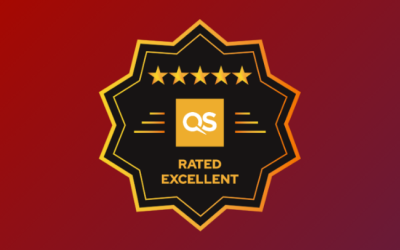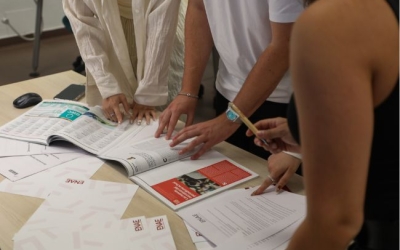
 Blog
Blog03/04/2025
International marketing: the key to facing Trump's new tariffs
Sumary:
The recent announcement by US President Donald Trump about the imposition of new tariffs — reaching 20% for the European Union, 34% for China and 10% universally — has unleashed a storm of uncertainty in global markets. This aggressive trade policy not only increases imports, but also affects the direct company's international marketing decisions.
In an environment where competitiveness is threatened by tariff barriers, international marketing becomes a strategic shield for adapting, repositioning brands, redesigning value propositions and exploring new, less exposed markets.
International marketing can actively respond to commercial wars
Tariffs alter traditional trade flows, forcing many companies to rethink not only their logistics routes, but also their product, pricing and communication strategies. This is where international marketing comes in: a discipline that not only observes global consumer behaviour, but also understands how to adapt business decisions to changing contexts.
For example:
- Brand repositioning: In markets where the cost of the product increases due to tariffs, brands must emphasise added values (quality, sustainability, innovation) that justify the final price.
- Market diversification: companies must identify new commercial destinations less affected by current tariffs, and here market research and segmentation become essential.
- Adapting the marketing mix: Sometimes it is not possible to maintain the same product, channel or message. Adjusting the offer to the new economic and cultural context is vital to maintain relevance and sales.
- Strategic branding: Companies can seize the opportunity to strengthen their global presence through campaigns that connect emotionally with new target audiences.
Education in marketing, logistics and international trade: the new competitive advantage that responds to the new order of global trade
Updating knowledge or training in marketing, logistics and international trade is no longer an option, but a key tool for anticipating and acting with commercial intelligence in the face of the ups and downs of the global scenario. In this new order, where the unexpected becomes the norm, having teams trained to analyse geopolitical trends, adapt strategies and manage commercial crises is a decisive factor for survival.
In our Master's in International Trade, we are reinforcing the modules on strategic marketing, market intelligence and adaptation of the international marketing mix with real cases arising from the new global protectionism. Our goal is to prepare tomorrow's leaders to act with agility, creativity and strategic thinking.
Likewise, in this new commercial scenario, the Master's in International Digital Marketing from our business school is consolidating its position as an indispensable training tool. With a global strategic vision and a practical approach, it prepares professionals to design campaigns adapted to fragmented markets, optimise digital positioning in hostile contexts and make the most of digital channels to overcome geopolitical barriers. The ability to connect with international audiences, even when commercial conditions become adverse, is today an unquestionable competitive advantage. Our students develop the skills to turn uncertainty into opportunity, managing global brands with agility, precision and strategic vision.
Tougher tariff policies also require a thorough redesign of global supply chains. In this context, our Master's Degree in Logistics and Operations Management provides essential strategic training. Future logistics leaders must understand how to optimise routes, minimise costs derived from tariffs, adapt to sudden changes in trade regulations and maintain operational efficiency in volatile scenarios. Our education addresses these challenges with real cases, state-of-the-art technological tools and a global vision of trade. Preparing with us means being ready to lead the logistics of the future, even in times of geopolitical disruption.
How to take advantage of the opportunities behind the challenge of new international trade
Despite the climate of tension, every crisis generates opportunities. Companies that know how to use international marketing will not only be able to minimise the negative effects of tariffs, but even emerge stronger. How? By reinventing their channels, innovating in products adapted to the new conditions and creating stronger links with their global audiences.
The tariff conflict is not resolved through passivity, but through action, vision and strategy. And international marketing, when applied correctly, can make the difference between stagnating and evolving.
Related master's

Our Master in Digital International Marketing is offered both online and in a hybrid format, which integrate synchronous and asynchronous components while maxim
Recommended articles
You might also be interested in reading
What really defines the quality of an educational institution? Is an official degree enough to guarantee excellence? Or should we look beyond that, to indicators such as employability, return on investment or teaching innovation? Nowadays, it…

QS Ranking: an international benchmark for those seeking excellence in business education
Nowadays, the range of educational opportunities is wide, globalised and very demanding. What can I tell you that you don't already know? That's why finding the perfect school for your education is such a challenge. Although there are a few ‘tricks…
Choosing a master's degree is one of the most important decisions for anyone's professional development. That's why it's essential to understand what educational rankings are, what aspects they actually evaluate, and how to use them to make a good…












